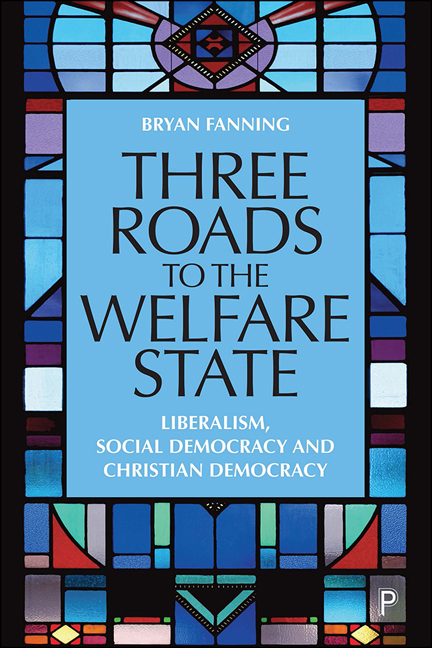Book contents
- Frontmatter
- Contents
- About the author
- Preface
- 1 Three roads
- 2 The invention of laissez faire
- 3 Utopian socialism
- 4 Reform liberalism and technocracy
- 5 Catholic social thought versus modernity
- 6 The case for social democracy
- 7 Social engineering versus democracy
- 8 The rise of neoliberalism
- 9 European Christian democracy
- 10 Legacies
- Notes
- Select bibliography
- Index
3 - Utopian socialism
Published online by Cambridge University Press: 13 May 2022
- Frontmatter
- Contents
- About the author
- Preface
- 1 Three roads
- 2 The invention of laissez faire
- 3 Utopian socialism
- 4 Reform liberalism and technocracy
- 5 Catholic social thought versus modernity
- 6 The case for social democracy
- 7 Social engineering versus democracy
- 8 The rise of neoliberalism
- 9 European Christian democracy
- 10 Legacies
- Notes
- Select bibliography
- Index
Summary
The term socialist first appeared in print in English in 1827 in an article in The London Co-operative Magazine. It was originally taken to mean somebody who acted unselfishly for the common good. As an adjective, it denoted the body of knowledge which outlined, described, and ‘proved’ the rightness of such action. It was a definition that recast Jeremey Bentham's utilitarian goal of the greater good of the greater number of individual interests in terms of the greater collective interest. The earliest written use of the term has been traced to a letter five years earlier from Edward Cowper, an inventor and engineer, to Robert Owen, which described a mutual friend as a socialist. Early British socialists came to be called Owenites. Owen was a successful industrialist who became renowned for reforms he introduced at the factory he ran at New Lanark in Scotland, as a campaigner for Factory Acts, which would improve the conditions of workers, and as the advocate of planned communities modelled on New Lanark, which would serve as sanctuary islands of socialism in an ocean of capitalism.
Owen's proposals were rooted in a very different understanding of human nature than those of liberal political economists like Malthus. Owen accepted John Locke's account of the human mind as a blank slate that was shaped by what was empirically perceived through the five senses, as set out in his Essay Concerning Human Understanding (1689). Like William Godwin and Mary Wollstonecraft, he was influenced by Jean Jacques Rousseau to believe that human relations could and should be remade in accordance with enlightened reason. Rousseau's dream, of a new form of society, secured by a social contract that delivered freedom and equality for citizens who governed themselves in accordance with a ‘general will’ – working with identical minds for the common good, without dissensions, tumult or conflicts – proved hugely influential. Owen never felt the need to justify his faith in reason or to discuss the writings that influenced him. Although he was, from an early age, a voracious reader, he tended not, in his own works, to cite other writers and thinkers. Some of what he argued resembled the writings of the hugely influential-at-the-time Godwin, whose Inquiry Concerning Political Justice (1793) included a chapter titled ‘The Characters of Men Originate in their External Circumstances.’
- Type
- Chapter
- Information
- Three Roads to the Welfare StateLiberalism, Social Democracy and Christian Democracy, pp. 33 - 54Publisher: Bristol University PressPrint publication year: 2021



